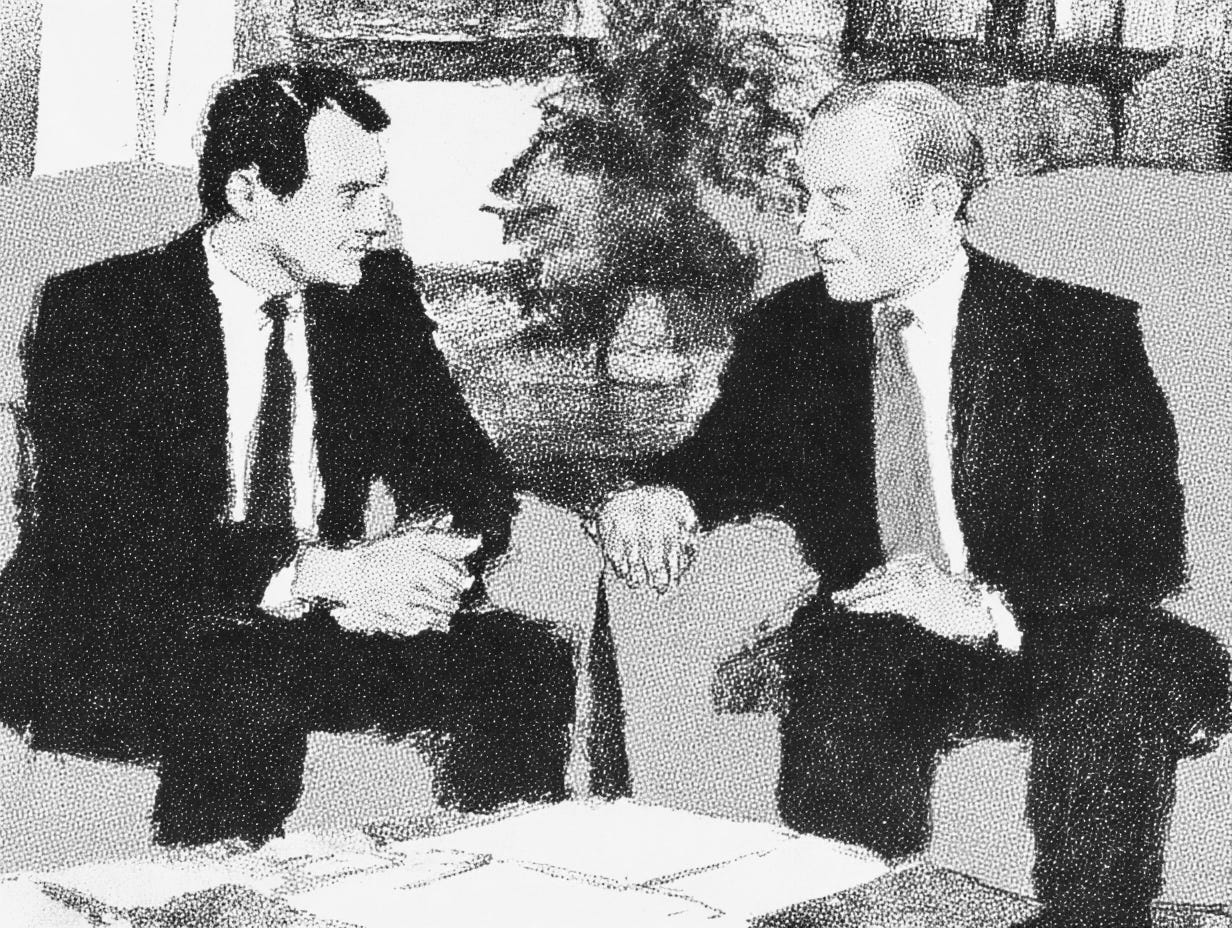No Right to Exist
American arguments, international law, and the sovereignty of Israel.
Socialist Zohran Mamdani is running for mayor of New York and he's getting twisted into knots over Israel. Last month, he said yes, he believes in "Israel's right to exist." As you can imagine, this got him no end of grief from his base, and last night at a televised debate his rival Andrew Cuomo pressed him on it again.
“Yes or no, do you believe in a Jewish state of Israel?” Cuomo asked him.
“I believe Israel has the right to exist as a state with equal rights,” said Mamdani.
This is not a good answer, even though it's quite calculated. It's a politician's answer. It satisfies no one. In some ways, it might be the least bad answer for Mamdani, but at its core there is no good answer to be found because it is not a good question.
"Does Israel have the right to exist?"
It sounds more fitting for a presidential debate than a mayoral debate, on paper. In practice, however, this question is everywhere, in and outside of the political sphere. It's on your Instagram feed. It's on your campus. It's on your Hinge. You can't not think about it as an American.
People who resoundingly say 'no' like this question because it forces a friend-enemy identifying distinction to be revealed. The same can be said for Zionists on the other side. What I lightly suggest for you, though, is to reject the question itself as based on false premises. It imagines a world that does not exist, a world with either an uncontested global sovereign or a moralizing supernatural force we can somehow accurately interpret. It's either a religious question or an absurd one.
Let's break it down. We know what Israel is. We know what existing is. Now, what is a right? Rights are entitlements. They mean you are allowed or guaranteed something. Of course, someone or something has to do the allowing and guaranteeing. There are two competing schools of thought on who that figure is.
The first school is called natural law theory and it says rights are granted by something higher than man. Yes, this is inherently mystical, even if it is presented as secular. Thomas Aquinas and most Western thinkers historically said this right-giver was the Christian god. Thomas Jefferson summed up natural law theory very cleanly when he wrote in the Declaration of Independence, "We hold these truths to be self-evident, that all men are created equal, that they are endowed by their Creator with certain unalienable Rights."
The Declaration is not a legal document, though. It is a revolutionary manifesto. When it came time to write the Constitution, the founders understood full well that rights are ultimately enshrined by an earthly sovereign, an entity with a monopoly on physical force. Nowhere in the Constitution do we find God granting inalienable rights. It's the document itself compelling the government to do the granting.
This idea that rights exist because they are granted by a ruler is called legal positivism. John Austin presented this ruler as a man or body of officials who exercise dominion. Obviously, this school of thought remains coherent even without an outside entity like God creating natural law. All the constituent parts of positivism are here in the material realm.
It's no surprise American political candidates are talking about rights as if they are synonymous with personal moral values in a way that seems almost schizophrenic. Trying to maintain a sound philosophical basis for natural law in a secular frame has been one of the core tensions in the West for a long time. "Everyone has the right to life, liberty, and security of person," the 1948 United Nations Universal Declaration of Human Rights declares, aping the conclusions of Locke with no foundational attempt to identify or explain the actual source of these declared 'rights' in absence of a god.
A stronger institution than the UN wouldn't have to fall back on appeals to natural law. "We are choosing to create these rights through enforcement, because we are world sovereign," would be perfectly sufficient. The United Nations, however, is very explicitly not the world sovereign. It possesses no monopoly on force, and in fact relies on uncoerced participant member nations to enforce norms. Its declarations are not binding. All it can do is cargo cult Jefferson and Locke with the God part stripped out, running its appeals off pure vibes. The Universal Declaration of Human Rights is a vibes document, not the constitution of a sovereign. Rights cannot be derived from vibes.
What about international law? Isn't that a thing? When you break it down, customary international law is not 'law' in the national sense at all, again because of the lack of decisive sovereign. It exists instead at two levels, that of agreements and that of peremptory norms. Agreements like treaties are voluntary multi-party limits on conduct enforced only through game-theoretical implications of retaliation for defection. Peremptory norms, meanwhile, are exactly what they sound like, norms. They are limits on conduct that everyone just generally sort of agrees on and rolls with. More pure vibes.
Once you accept that international law is built on agreements and norms with no extant monopoly on force, you realize there is no supranational sovereign to grant rights to nations in a positivist framework, outside of highly coercive and centralized blocs like the USSR or Delian League. A nation in physical control of itself is already the highest level of authority. No one is in a position to give it any rights.
You can argue that the size of the American military and the aid we render to Israel makes us their de facto sovereign. The past seventy-five years, however, have shown we do not have the power to effectively and definitively subjugate even one country an ocean away—not Iraq, not Vietnam, not Palestine, not Israel. Take away our arms sales to Israel, they carry on. Embargo them utterly, they carry on. Invade them, we pass through a bizarre portal through which the future is unknown and monopoly on violence in the region is almost assuredly impossible. We have no practical tools with which to definitively coercively control the existence of Israel. Instead, we are reliant on a majority or supermajority formed by a concert of sovereign peer nations to even have a chance of enforcing global norms. We don't run the world alone.
So does Israel have a right to exist? In the literal positivist sense, it can't. Only subjugated entities can have rights. More practically, this is not a question for America or Americans to answer unilaterally. We're not their sovereign. Israel is outside our sphere of uncontested dominion. We are one very strong nation on a large planet with a lot of other strong nations who all collectively create informal distributed consensus with the backing of force. Until there is a true world hegemon, no one will be in the practical position to create and garnish the rights of any given nation at will.



